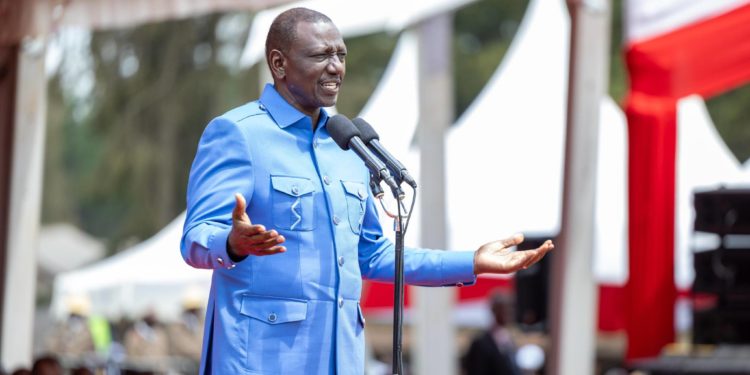President William Ruto has announced sweeping austerity measures, including the elimination of certain high-profile offices and a commitment to more prudent fiscal management.
The head of state, facing intense scrutiny over perceived governmental opulence, has pledged to implement significant austerity measures aimed at curbing unnecessary expenditure and aligning with the nation’s economic realities.
In a candid interview, Ruto emphasized his administration’s commitment to fiscal discipline and the eradication of extravagant practices that have drawn public ire.
Ruto addressed concerns about the display of opulence within his administration, acknowledging the public’s sentiments and promising a shift towards more modest governance.
“Let me be very clear that the display of insensitivity is a sentiment that has come to me,” he stated. “You will see something very different going into the future, whether it is coming from my staff or this office.”
As part of these measures, Ruto revealed that certain high-profile positions, such as those of Chief Administrative Secretaries (CAS), would remain unfilled until the economy can support such roles. “I have not appointed any CAS because I realized that we were in a situation that we could not sustain,” he said.
In a move likely to resonate with economically burdened citizens, Ruto announced the scrapping of several offices traditionally seen as symbols of governmental excess.
“I know citizens have said that there is no need for the office of the First Lady or Second Lady. These offices, from tomorrow with the new budget, will not be part of our equation,” he declared. This measure is intended to reflect the need for the government to “live within our means”.
Ruto’s administration also plans to reduce funding across various sectors, including a notable reduction in the judiciary’s budget. “When I came into office, the judiciary was getting KES 18 billion. Today, they are getting KES 25 billion. But it was because I believed in the rule of law. Now, we have to cut our cloth to the size of our coat,” he explained. These cuts are part of a broader strategy to manage the nation’s finances more effectively and ensure resources are allocated where they are most needed.
In closing, Ruto acknowledged the difficulty of these measures but underscored their necessity. “I will not lie to the country that putting down the finance bill is going to be easy. But those consequences will start with me. To cut down the budget in my office, to remove unnecessary staff, unnecessary offices,” he concluded.
















